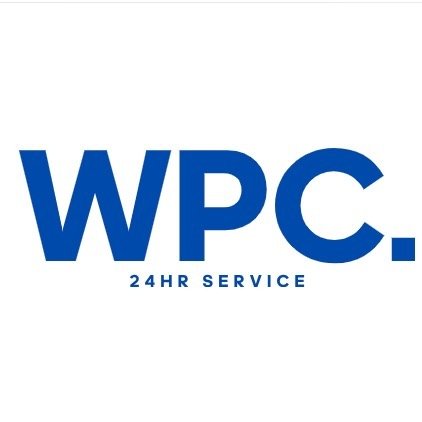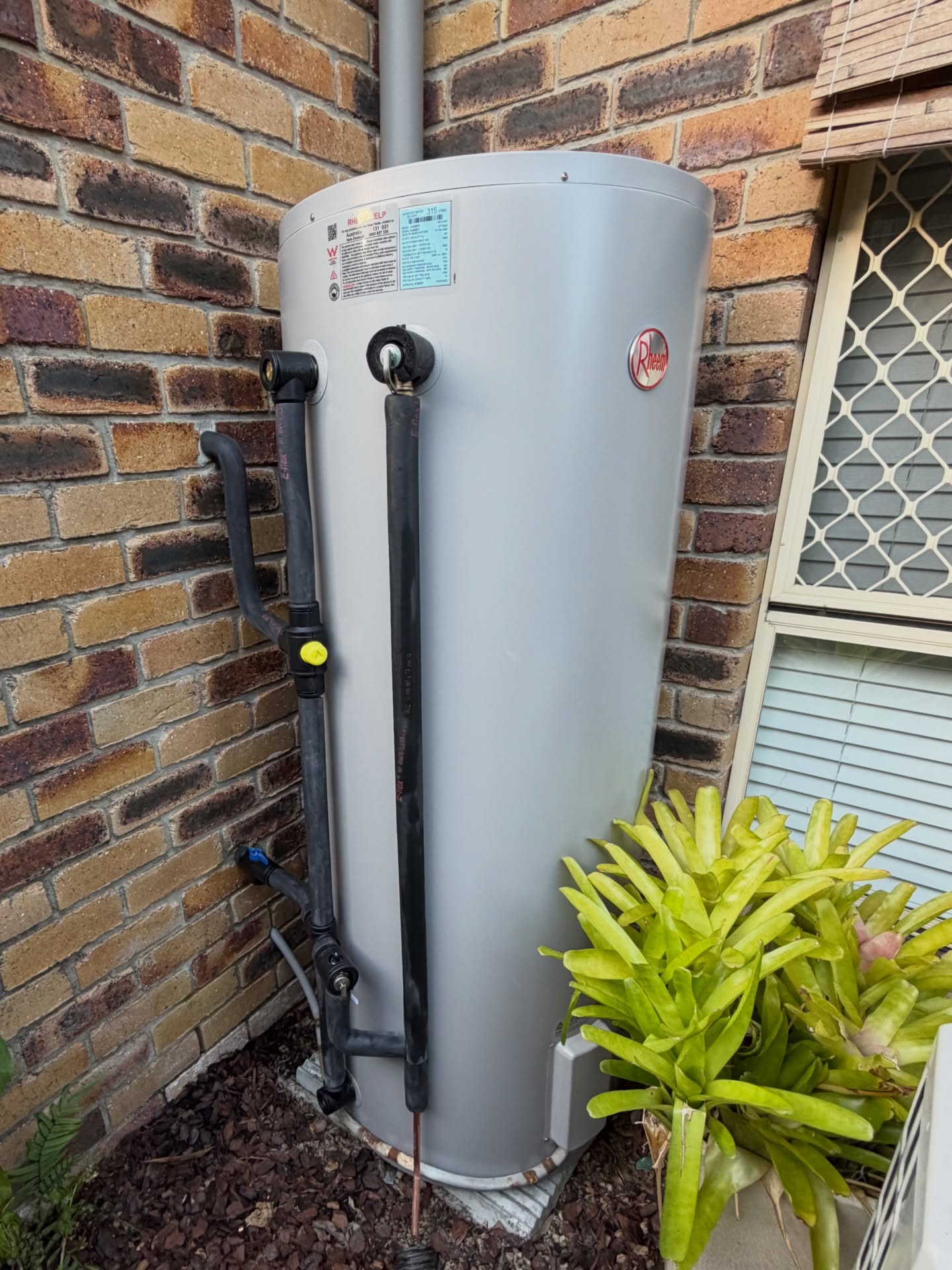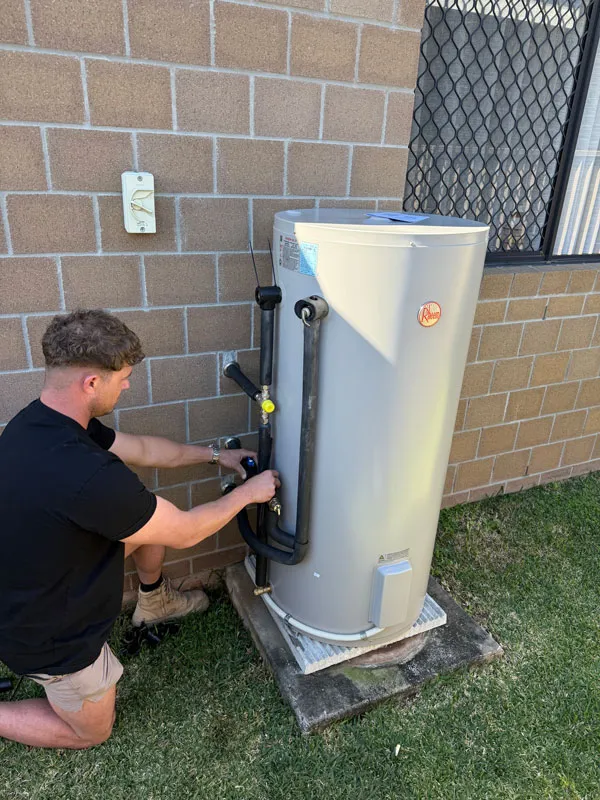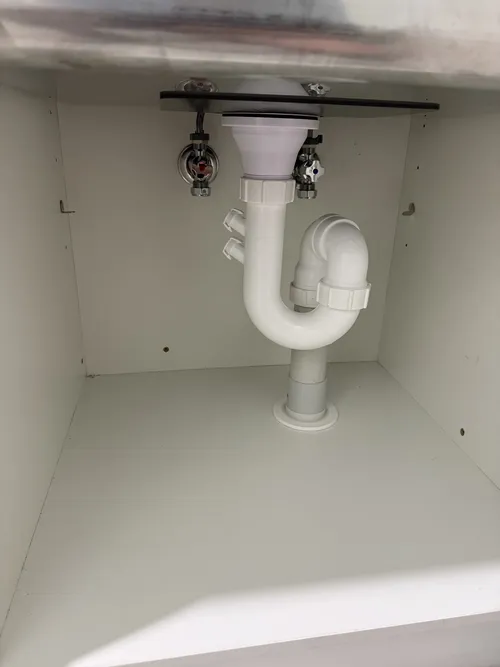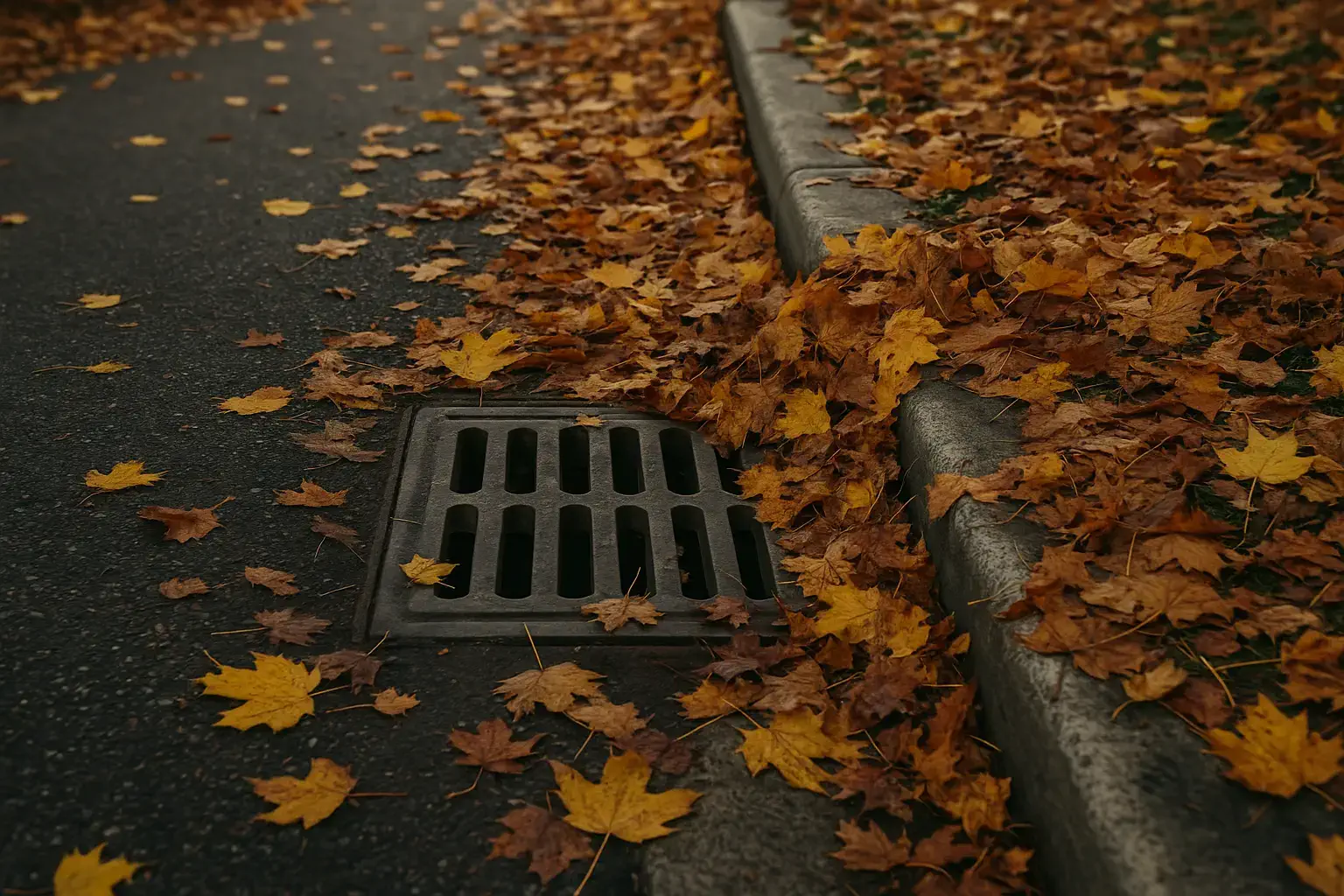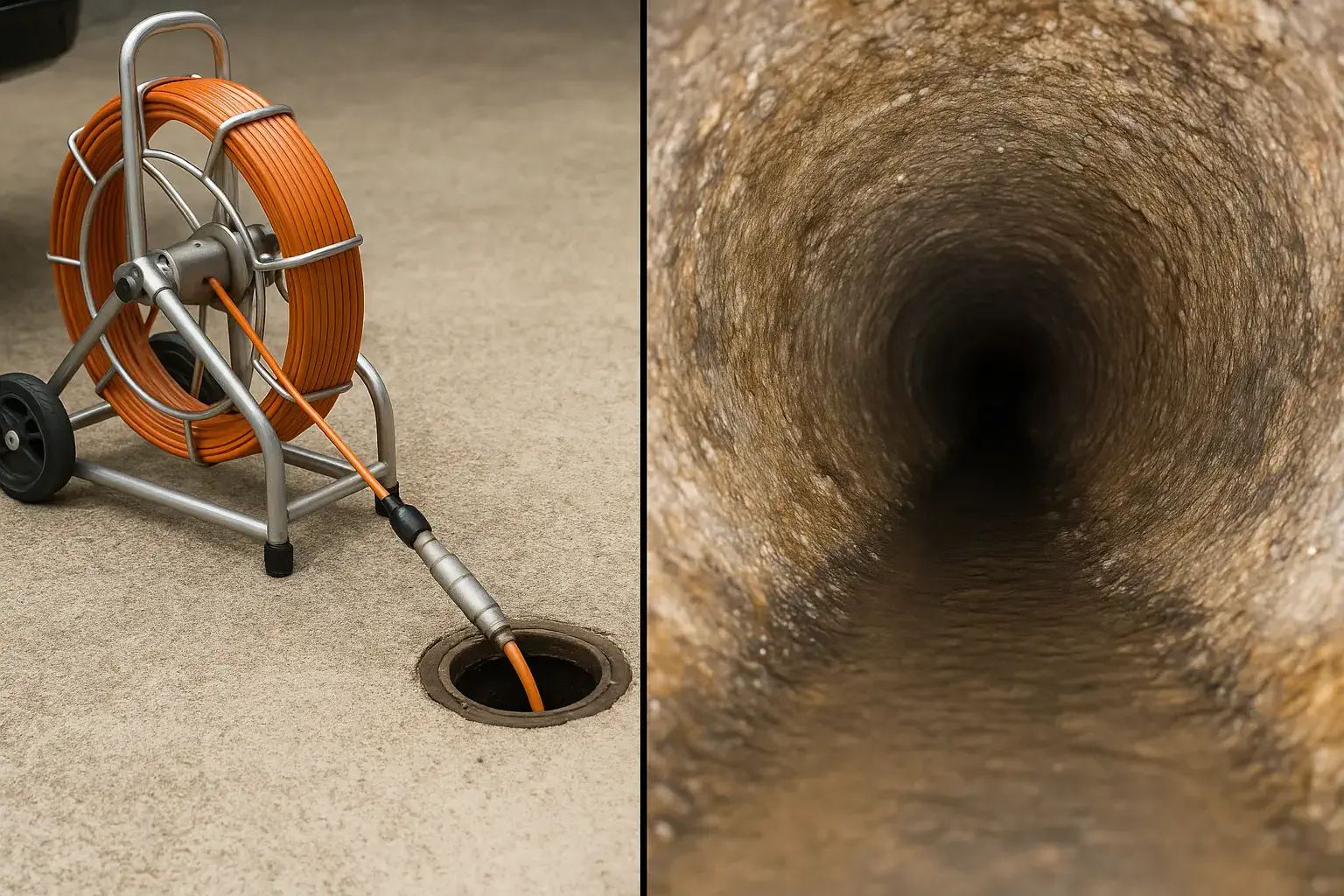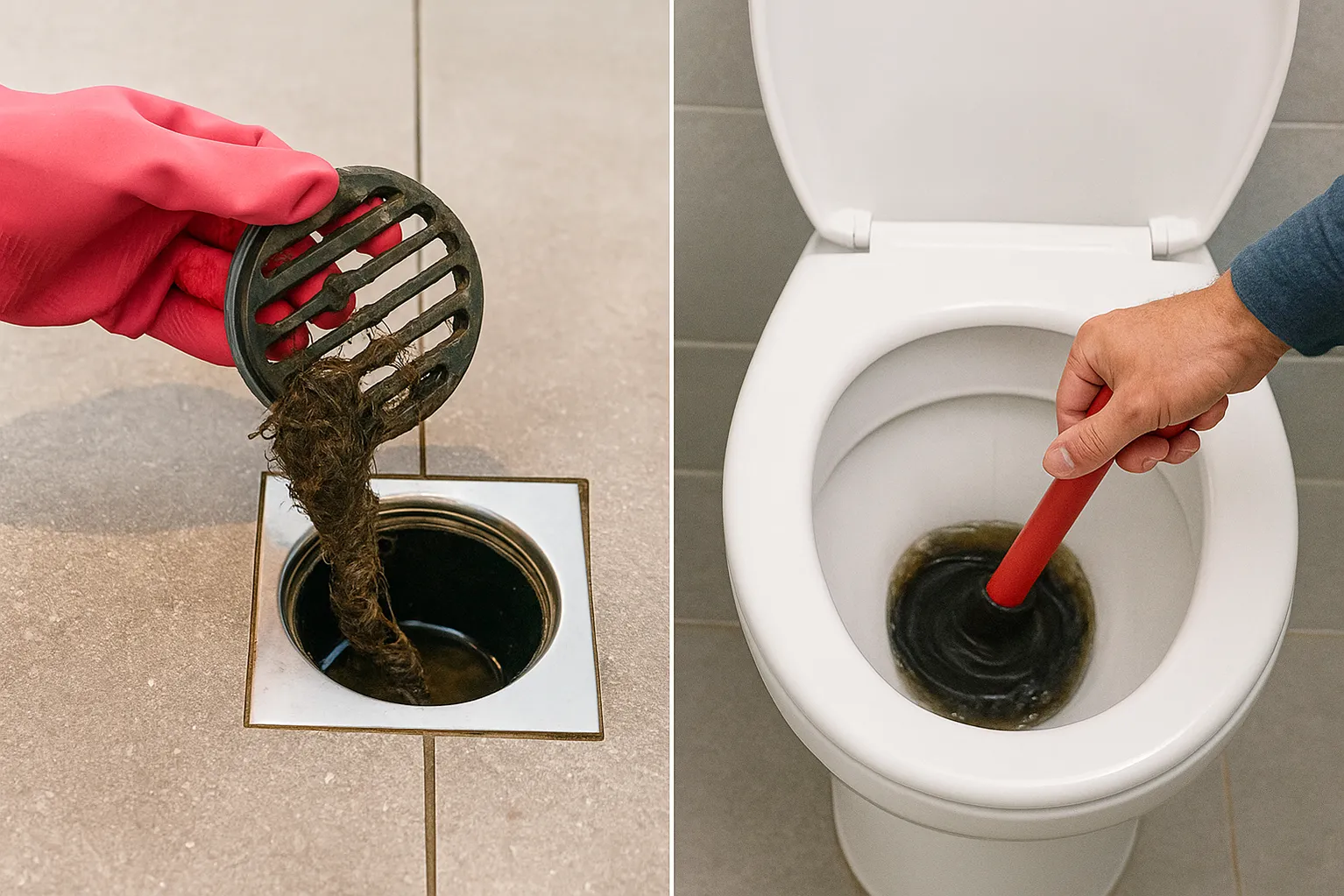
How to Fix Blocked Drains & Toilets: Complete Guide for Brisbane Northside & Moreton Bay Homeowners
Table of Contents
- Why Brisbane Homes Get More Blocked Drains
- Common Signs Your Drains Need Attention
- DIY Solutions for Blocked Toilets
- Fixing Blocked Drains in Your Brisbane Home
- When to Call a Professional Brisbane Plumber
- Prevention Tips for Brisbane Homeowners
- Tools Every Brisbane Homeowner Should Have
- Understanding Brisbane's Plumbing Codes and Regulations
- Emergency Preparedness for Brisbane Weather
- Choosing the Right Brisbane Plumber
- Environmental Considerations for Brisbane Residents
- Seasonal Maintenance Schedule for Brisbane Homes
- When Simple Fixes Don't Work
- Final Thoughts: Keeping Your Brisbane Home's Drains Flowing
Picture coming home after a long day in Brisbane's heat, only to find your toilet won't flush or your bathroom sink is backing up with murky water. If you're a homeowner in Brisbane Northside, Moreton Bay, or surrounding areas like Redcliffe, Caboolture, or Strathpine, blocked drains and toilets are probably more common than you'd like. The good news? Many of these blockages can be fixed with the right knowledge and a few basic tools.
This complete guide will walk you through everything you need to know about fixing blocked drains and toilets in your Brisbane home. We'll cover the most effective DIY solutions, when to call a professional plumber, and why Brisbane's unique conditions make drain problems so common in our area.
Why Brisbane Homes Get More Blocked Drains
Living in Brisbane Northside and Moreton Bay means dealing with some unique plumbing challenges. The subtropical climate in Brisbane creates perfect conditions for tree roots to grow aggressively toward your sewer lines. Those beautiful jacarandas and eucalyptus trees that line streets in suburbs like Aspley, Bracken Ridge, and Deception Bay? Their roots are constantly seeking water sources, including your pipes.
The heavy rainfall during our wet season (typically November to April) can quickly overwhelm drainage systems that weren't designed for sudden downpours. Many homes in areas like Sandgate, Brighton, and Woody Point were built decades ago with smaller pipe systems that struggle with today's water usage patterns.
Other issues like the clay soil common throughout Moreton Bay and Brisbane Northside expands and contracts with weather changes, putting pressure on underground pipes. This movement can create cracks and misalignments that catch debris and create blockages over time.
Common Signs Your Drains Need Attention
Before we get into solutions, you need to recognize the warning signs. Here's what to watch for in your Brisbane home:
Signs Of A Blocked Toilet
When your toilet is in trouble, you'll notice the water level rises higher than normal when you flush, or you might hear strange gurgling sounds. The water may drain very slowly from the bowl, and you could detect unpleasant odors coming from the toilet area. One of the most alarming signs is water backing up into your shower when you flush the toilet.
Signs Of A Blocked Drain
Your drains will give you similar warnings. Water can start pooling around floor drains during heavy rainfall, and you'll notice slow drainage in bathroom sinks, kitchen sinks, or shower drains. Other red flags can be bad smells coming from drain openings or water backing up in multiple fixtures at the same time, or wet patches in your yard, all of which could indicate broken sewer lines that need immediate attention.
DIY Solutions for Blocked Toilets
Most toilet blockages in Brisbane homes can sometimes be fixed without calling a plumber. Here are the methods that work best:
The Plunger Method
A good quality plunger is your first line of defense. For Brisbane homeowners, invest in a flange plunger (the type with an extended rubber piece) rather than a basic cup plunger. The flange design creates a better seal in modern toilet bowls.
Start by making sure there's enough water in the bowl to cover the plunger head, then position the plunger over the drain opening. Push down gently to create a seal, then pull up sharply. Repeat this motion 10-15 times with increasing force, then flush the toilet to test if the blockage has cleared.
If the water level is too high, use a cup to remove some water before plunging. Never add hot water to a blocked toilet as this can crack the porcelain.
Dish Soap and Warm Water Technique
This method works particularly well for organic blockages common in residential homes. Squirt a generous amount of dish soap into the toilet bowl and let it sit for 20-30 minutes to lubricate the blockage. Add warm (not boiling) water from about waist height, wait another 30 minutes, then try flushing.
The soap helps break down waste materials while the warm water can help dissolve buildup that's common in our hard water areas.
Wire Coat Hanger Method
For stubborn blockages that won't respond to plunging, straighten a wire coat hanger and leave a small hook at one end. Wrap the hook end in an old cloth to prevent scratching, then gently probe the toilet drain to dislodge the blockage. Be careful not to scratch the porcelain or push the blockage deeper.
This method works well for toys, excessive toilet paper, or other solid objects that might be causing the blockage.
Fixing Blocked Drains in Your Brisbane Home
Different types of drains require different approaches. Here's how to tackle the most common drain blockages:
Kitchen Sink Blockages
Kitchen drains in Brisbane homes often get blocked with grease buildup, especially during our hot summers when cooking oils can easily solidify in pipes.
The baking soda and vinegar method: works wonders for natural drain cleaning. Remove any standing water from the sink, pour one cup of baking soda down the drain, follow with one cup of white vinegar, then cover the drain with a plug or cloth for 30 minutes. Finish by flushing with hot water for 2-3 minutes. This natural solution breaks down grease and organic matter without harsh chemicals that can damage your pipes or harm Brisbane's waterways.
For minor grease buildup: simply boiling water can be effective. Boil a large pot of water and pour it down the drain in 2-3 stages, allowing time between pours. Repeat if necessary.
Bathroom Sink and Shower Drains
Hair and soap scum are the main culprits in bathroom drains. Brisbane's hard water makes soap scum buildup worse, creating sticky surfaces that trap hair and debris.
Manual removal: often solves the problem quickly. Remove the drain cover or stopper, use needle-nose pliers or tweezers to pull out visible hair clumps, then replace the drain cover and test with hot water.
When manual removal isn't enough: a basic drain snake (available at Bunnings for under $20) can clear deeper blockages. Insert the snake into the drain opening, turn the handle clockwise while pushing forward, and when you feel resistance, continue turning to break through the blockage. Pull the snake out and flush the drain with hot water.
Floor Drains and Laundry Drains
These drains often get blocked with lint, dirt, and debris. In most homes, they're also prone to backing up during heavy rains if connected to stormwater systems.
Basic cleaning: involves removing the drain grate, clearing out any visible debris, using a hose to flush the drain from the top, then replacing the grate.
For persistent odors or slow drainage: try a deep cleaning approach. Mix equal parts baking soda and salt, pour the mixture down the drain, follow with boiling water, let it sit for several hours or overnight, then flush thoroughly with cold water.
When to Call a Professional Brisbane Plumber
While many blockages can be fixed DIY-style, some situations require professional help. Call immediately if sewage is backing up into your home, multiple drains are blocked at the same time, water backs up into other fixtures when you use drains, foul odors persist after cleaning, or you hear gurgling sounds from multiple drains.
Watch for signs of serious problems: like wet patches in your yard that could indicate broken sewer lines, toilets or drains that keep blocking despite repeated clearing, water damage around fixtures, or cracks in your foundation near plumbing lines.
Brisbane specific concerns: that need professional attention include tree root intrusion (common in older suburbs like Kedron, Nundah, or Chermside), storm damage to underground pipes, clay soil movement affecting your sewer lines, and issues related to Brisbane City Council regulations.
Prevention Tips for Brisbane Homeowners
The best way to deal with blocked drains is to prevent them in the first place. Here are practical tips that work well in our Brisbane climate:
Kitchen Prevention
-
Grease management is critical in Brisbane's hot climate. Never pour cooking oil or grease down your kitchen drain. Brisbane's hot weather can make grease liquid, but it will solidify in your pipes. Instead, collect grease in a container and dispose of it in your general waste, wipe greasy pans with paper towels before washing, and use cold water when washing dishes to keep grease solid.
-
Food waste control matters even with a garbage disposal. Scrape plates thoroughly before washing, avoid putting coffee grounds, eggshells, or fibrous vegetables down the drain, and run cold water while using the garbage disposal.
Bathroom Prevention
-
Hair management starts with installing drain screens in all bathroom drains. These inexpensive devices (available at any Brisbane hardware store) catch hair before it can create blockages. Clean them weekly to maintain effectiveness.
-
Soap and product buildup gets worse with Brisbane's hard water. Combat this by using liquid soap instead of bar soap when possible, rinsing drains with hot water weekly, and cleaning drain covers monthly.
Toilet Prevention
-
Proper toilet usage means only flushing human waste and toilet paper. Common items that block Brisbane toilets include baby wipes (even those labeled "flushable"), cotton balls and cotton swabs, dental floss, cat litter, and cigarette butts.
-
Water level monitoring helps prevent problems before they start. Keep an eye on your toilet's water level, as Brisbane's variable water pressure can affect how well toilets flush. If you notice weak flushing, address it before blockages occur.
Outdoor Prevention
-
Tree root management becomes crucial if you have large trees near your sewer lines, which is common in established suburbs like Gordon Park, Stafford, or Banyo. Have your lines inspected every few years, as tree roots are one of the most common causes of serious blockages in Brisbane homes.
-
Stormwater considerations involve keeping your property's stormwater drains clear of leaves and debris, especially during Brisbane's wet season. Blocked stormwater drains can cause backups in your home's drainage system.
Tools Every Brisbane Homeowner Should Have
Having the right tools on hand can save you time and money when dealing with drain problems.
Your basic toolkit should include:
- a quality flange plunger ($15-25 at Bunnings)
- a basic drain snake or auger ($20-40)
- rubber gloves and eye protection
- a flashlight or headlamp for inspecting drains.
Other supplies to keep handy:
- baking soda
- white vinegar for natural cleaning
- dish soap that cuts grease effectively
- drain screens for all your drains
- a basic toolkit for removing drain covers when needed
Understanding Brisbane's Plumbing Codes and Regulations
Brisbane City Council has specific requirements for plumbing work. While homeowners can perform basic maintenance and minor repairs, any work involving sewer line connections, new drain installations, major pipe replacements, or water meter connections must be performed by a licensed plumber. This protects both your property value and Brisbane's water quality.
How to Do Emergency Brisbane Weather Preparation
Our subtropical climate brings unique challenges. During Brisbane's storm season, have an emergency plan ready.
Before storms hit
Clear all outdoor drains of debris, know the location of your water main shutoff, and have emergency contact information for a 24-hour plumber readily available.
During heavy rains
Avoid using drains if possible during peak rainfall, never attempt to clear outdoor drains during storms, and watch carefully for signs of sewage backup.
After storms pass
Inspect your property for drainage issues, clear any debris from outdoor drains once it's safe to do so, and call a professional if you notice any new drainage problems.
Choosing the Right Brisbane Plumber
When you do need professional help, choose a plumber who holds current Queensland licensing, has experience with Brisbane's unique soil and weather conditions, offers 24-hour emergency service for serious blockages, provides upfront pricing, and has good reviews from other Brisbane Northside and Moreton Bay residents.
At Weekend Plumbing Co., we understand the specific challenges of our area from dealing with Queensland clay soil to navigating Brisbane City Council requirements. We're here to help with all blocked drain issues in your residential home.
Environmental Considerations for Brisbane Residents
As Brisbane residents, we have a responsibility to protect our beautiful waterways. When dealing with drain blockages, avoid harsh chemicals that can harm Brisbane River and Moreton Bay ecosystems. Natural alternatives like baking soda and vinegar work just as well for most blockages.
Proper disposal matters:
Never flush medications down drains (take them to pharmacy disposal programs instead), avoid putting paint or solvents down drains (use Brisbane City Council hazardous waste disposal), and keep garden chemicals or fertilizers out of your drainage system.
Water conservation:
Water conservation should be on your mind while clearing blockages. Brisbane's water restrictions may apply even to drain clearing activities, so be mindful of your usage.
Seasonal Maintenance Schedule for Brisbane Homes
Create a maintenance routine that works with Brisbane's climate.
Monthly tasks: include cleaning all drain screens, checking toilet flushing efficiency, and running hot water through all drains.
Before wet season arrives in October:
- clear outdoor drains of leaves and debris
- inspect gutters and downpipes
- check for any slow-draining fixtures.
After wet season ends in May:
- consider professional inspection of main sewer lines if you have large trees
- deep clean all drains with natural solutions
- check for any storm damage to outdoor drainage.
Annual maintenance:
Annual maintenance should include professional drain camera inspection if you live in an older home, tree root assessment if you have established landscaping, and reviewing and updating emergency contact information.
When Simple Fixes Don't Work
Sometimes, what seems like a simple blockage is actually a sign of bigger problems. Here's a few things to look for to recognize when you're dealing with more than just a basic clog.
-
Recurring blockages suggest deeper issues. If the same drain keeps blocking despite proper maintenance, you might be dealing with pipe damage from tree roots, collapsed or misaligned pipes, or buildup that requires professional equipment to remove.
-
System-wide issues point to main sewer line problems. When multiple fixtures are affected, the problem is likely in your main sewer line. This always requires professional attention and might involve camera inspection of sewer lines, hydro jetting to remove buildup, or pipe repair and replacement.
-
Age-related problems affect many Brisbane homes. Homes in established Brisbane suburbs like Clayfield, Hendra, or Lutwyche may have aging pipe systems that need professional assessment. Cast iron pipes, common in homes built before 1980, are particularly prone to problems.
The Wrap Up: Keeping Your Brisbane Home's Drains Flowing
Dealing with blocked drains and toilets is never fun, but with the right knowledge and tools, most Brisbane homeowners can handle minor blockages themselves. The key is recognizing early warning signs, using the right techniques for each type of blockage, and knowing when to call for professional help.
Remember that Brisbane's unique climate and soil conditions make regular maintenance extra important. By following the prevention tips in this guide and addressing problems early, you can avoid most serious drainage issues.
When you do need professional help, don't wait as water damage and sewage backups can quickly become expensive problems that affect your family's health and your property value.
For reliable, professional drain clearing services in Brisbane Northside and Moreton Bay areas, our experienced local plumbing team understands your unique challenges. We provide upfront pricing, 24-hour emergency service, and solutions designed to work with Brisbane's climate and soil conditions.
Call our Brisbane plumbing team today for fast, effective drain clearing services. We're local professionals who understand exactly what Brisbane homeowners need to keep their drains flowing smoothly year-round.
